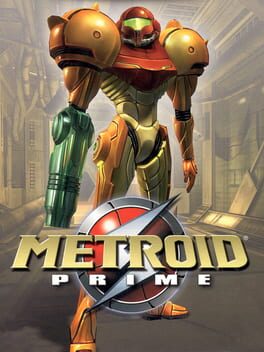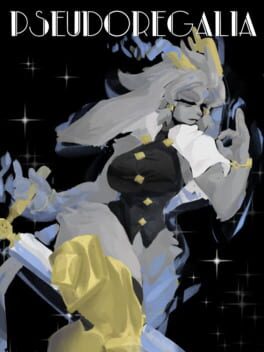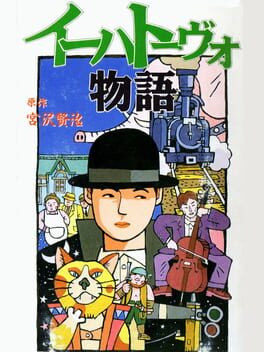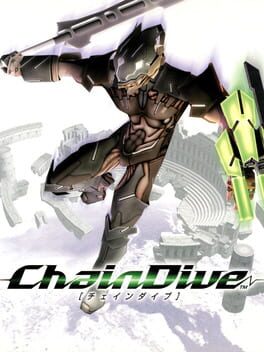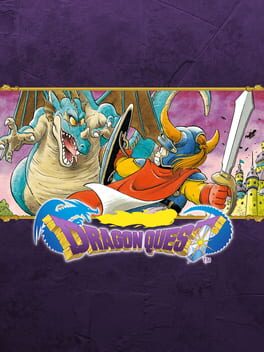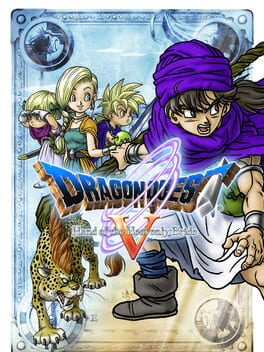hannenx
2002
immaculate vibes, world etc and great pacing in this half but yeah the second half really lets it down, it loses the energy
collecting the artefacts made me stop playing for a bit, the game design just seems rushed,
two bosses right after each other, that both get sluggish and annoying to fight, the mechanics aren't made for the amount of metroid at the end (or maybe get gud etc)
but glad i finally got round to this, the "metroidvania" game design (which you could argue it's not I guess without the rpg elements circa tim rogers on insert credit) is a such a satisfying almost SPIRITUAL way of design approaching - thinking about ursula k le guin and the dispossed "true voyage is return" (with powerups)
collecting the artefacts made me stop playing for a bit, the game design just seems rushed,
two bosses right after each other, that both get sluggish and annoying to fight, the mechanics aren't made for the amount of metroid at the end (or maybe get gud etc)
but glad i finally got round to this, the "metroidvania" game design (which you could argue it's not I guess without the rpg elements circa tim rogers on insert credit) is a such a satisfying almost SPIRITUAL way of design approaching - thinking about ursula k le guin and the dispossed "true voyage is return" (with powerups)
2023
1993
2006
its good
the appreciate the anti-capitalist slant, tho wish it went harder at points
And also omg i guess this is a big me problem but i really could not get the rhythm system to work for me and did hamper my enjoyment of the game
there is a spirit in here that I appreciate, but something feels slightly missing to me here - i hope, that in a post-undertale, post- moon rerelease (and i think this game would have hit me a lot more if id hadn’t played moon before it) world, that someone or some people will build off this structure of critique with proper queer and indigenous representation and hard, hard takedown of western modernity
but ye fun time lol
the appreciate the anti-capitalist slant, tho wish it went harder at points
And also omg i guess this is a big me problem but i really could not get the rhythm system to work for me and did hamper my enjoyment of the game
there is a spirit in here that I appreciate, but something feels slightly missing to me here - i hope, that in a post-undertale, post- moon rerelease (and i think this game would have hit me a lot more if id hadn’t played moon before it) world, that someone or some people will build off this structure of critique with proper queer and indigenous representation and hard, hard takedown of western modernity
but ye fun time lol
2003
2011
2004
2016
one day I will write a proper essay and/or make a feature-length youtube video on my favourite video game but for now here's some notes:
- I have never played a game that so effortlessly deconstructs it's own medium while marrying gameplay and story and themes until this game
- Neoliberalism + the police state + the information/digital age on blast
- all of tokio's segments hit harder in post-covid 2023
- kaumi is the demon of the info age, the human manifestation of the violence of the state
- a story about power and where it lays
- if we take neoliberalism to be the capitalism of "choice" in that it exploits freedom, then mechanically and thematically, the silver case is a direct confrontation of the dichotomy between freedom and power. we can take video games to be the arch artform of the neoliberal era, a form that gives the audience the chance, the freedom to make choices, the freedom to create their own narratives in the worlds laid before them. Visual novels/Japanese adventure games generally offer the player different kinds of narrative choices to affect the world laid before, the silver case actively pushes against this. in both scenarios, "transmitter" and "placebo", we play as two characters not in control of their own narratives, powerless to affect any change. the most amount of choice we have mechanically is to walk around a 3d environment and follow, for the most part, very rigid instructions. as we learn towards the end of the game, these characters' narratives have been affected before the we even pressed start. when we play a videogame, the choice given to us is obviously an illusion, boundaries always programmed in, our freedom is always limited despite many times being actively sold to us by PR as enticing freedoms. a competiton of freedoms.
- when we explore the 3d environments, no persons exist within them, simply objective markers. within the environments produced by the state + the financial markets + land developers we are alienated to the other occupants, only the images of a person is presented to us.
- the music bangs
- the loud typing sounds make us constantly aware of 1. the primary mode of communication in the digital age 2. the often overwhelming, sometimes annoying abundance of information in our age 3. that someone (suda5, masahi ooka and sako kato) has wrote this all out for us to engage with, likely on a keyboard
- much of the tediousness is wholly intentional, integrated with game's themes of information abundance and the bureaucracy of the state as a form of power. but it also has the effect of lulling the player into it's world, repetition can be a powerful sedative to those willing to give in. it's Tarkovsky-esque lol
- just like sick UI/UX design how can you not love it pal
(more maybe later, need to play the 25th ward now)
- I have never played a game that so effortlessly deconstructs it's own medium while marrying gameplay and story and themes until this game
- Neoliberalism + the police state + the information/digital age on blast
- all of tokio's segments hit harder in post-covid 2023
- kaumi is the demon of the info age, the human manifestation of the violence of the state
- a story about power and where it lays
- if we take neoliberalism to be the capitalism of "choice" in that it exploits freedom, then mechanically and thematically, the silver case is a direct confrontation of the dichotomy between freedom and power. we can take video games to be the arch artform of the neoliberal era, a form that gives the audience the chance, the freedom to make choices, the freedom to create their own narratives in the worlds laid before them. Visual novels/Japanese adventure games generally offer the player different kinds of narrative choices to affect the world laid before, the silver case actively pushes against this. in both scenarios, "transmitter" and "placebo", we play as two characters not in control of their own narratives, powerless to affect any change. the most amount of choice we have mechanically is to walk around a 3d environment and follow, for the most part, very rigid instructions. as we learn towards the end of the game, these characters' narratives have been affected before the we even pressed start. when we play a videogame, the choice given to us is obviously an illusion, boundaries always programmed in, our freedom is always limited despite many times being actively sold to us by PR as enticing freedoms. a competiton of freedoms.
- when we explore the 3d environments, no persons exist within them, simply objective markers. within the environments produced by the state + the financial markets + land developers we are alienated to the other occupants, only the images of a person is presented to us.
- the music bangs
- the loud typing sounds make us constantly aware of 1. the primary mode of communication in the digital age 2. the often overwhelming, sometimes annoying abundance of information in our age 3. that someone (suda5, masahi ooka and sako kato) has wrote this all out for us to engage with, likely on a keyboard
- much of the tediousness is wholly intentional, integrated with game's themes of information abundance and the bureaucracy of the state as a form of power. but it also has the effect of lulling the player into it's world, repetition can be a powerful sedative to those willing to give in. it's Tarkovsky-esque lol
- just like sick UI/UX design how can you not love it pal
(more maybe later, need to play the 25th ward now)
